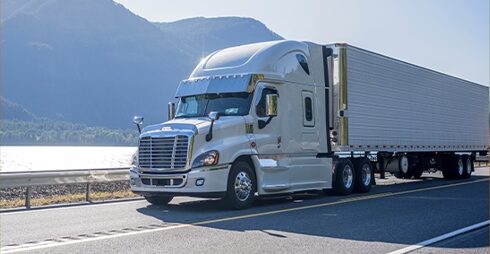Every day, 18-wheelers (also called tractor-trailers, semis, or trucks) travel thousands of miles throughout South Dakota. Whether they are hauling cargo, equipment, fuel, hay, or cattle, these trucks are traveling on the Interstate, one of South Dakota’s many rural highways, or a busy urban street. As such, these trucks share the road with cars, pickups, motorcycles, campers, and buses.
Unfortunately, when there is a crash, the drivers and passengers in smaller vehicles often bear the brunt of the collision. Knowing where and when these types of accidents often happen is helpful so that motorists can pay extra attention to protect themselves and avoid getting hurt or worse.
When and where truck accidents often occur
According to statistics from the Federal Motor Carrier Safety Administration, truck crashes are more likely to happen:
- In rural areas (for fatal truck crashes);
- On weekdays;
- During the daytime; and
- In clear weather.
In other words, despite what you might have thought, the risk of being involved in a collision with a truck that is fatal is not necessarily the greatest in areas of traffic congestion or during bad weather. Instead, these accidents often occur in rural, less congested areas and during daytime hours.
Staying safe around trucks
When you are sharing the road with an 18-wheeler, there are several precautions you can take to lessen the chances of being involved in a collision. Such measures can include:
- Leaving plenty of space between you and trucks;
- Making yourself visible to trucks by staying out of their blind spots;
- Using extreme caution when passing trucks, particularly on a two-lane road;
- Obeying the speed limit;
- Watching for, and driving defensively around, trucks that appear to be swerving or moving around within their lanes, or drifting out of their lanes;
- Putting away any distractions;
- Pulling over if you start to feel tired;
- Wearing your seat belt;
- Ensuring that your vehicle is in good operating condition;
- Scanning the road in front of you and paying attention to trucks—as well as other vehicles; and
- Being extra careful when driving in inclement weather, including reducing your speed as appropriate.
These measures can protect you even if the people around you have not taken the same steps to avoid an accident with a truck.
The unfortunate truth is that we cannot prevent every crash by our own actions. This is because truck drivers—and other users of the road—make decisions that can affect us.
Given the differences in the weights and sizes of the vehicles, collisions with 18-wheelers often result in catastrophic injuries or death to the occupants of cars and pickups. If a truck driver’s negligent operation of a truck (or a trucking company’s failure to maintain its truck), results in injury or death, injured motorists and their families should know that they have the right to hold the truck driver and/or the trucking company accountable for the injuries and damages they caused. If you or a loved one is involved in a collision with a truck, feel free to call the attorneys at Thomas Braun Bernard & Burke, LLP. They have significant experience with cases involving 18-wheelers. In fact, one of their attorneys, John W. Burke, has a Commercial Driver’s License and has driven 18-wheelers, giving him unique insight into the expected practices and conduct of truck drivers.




